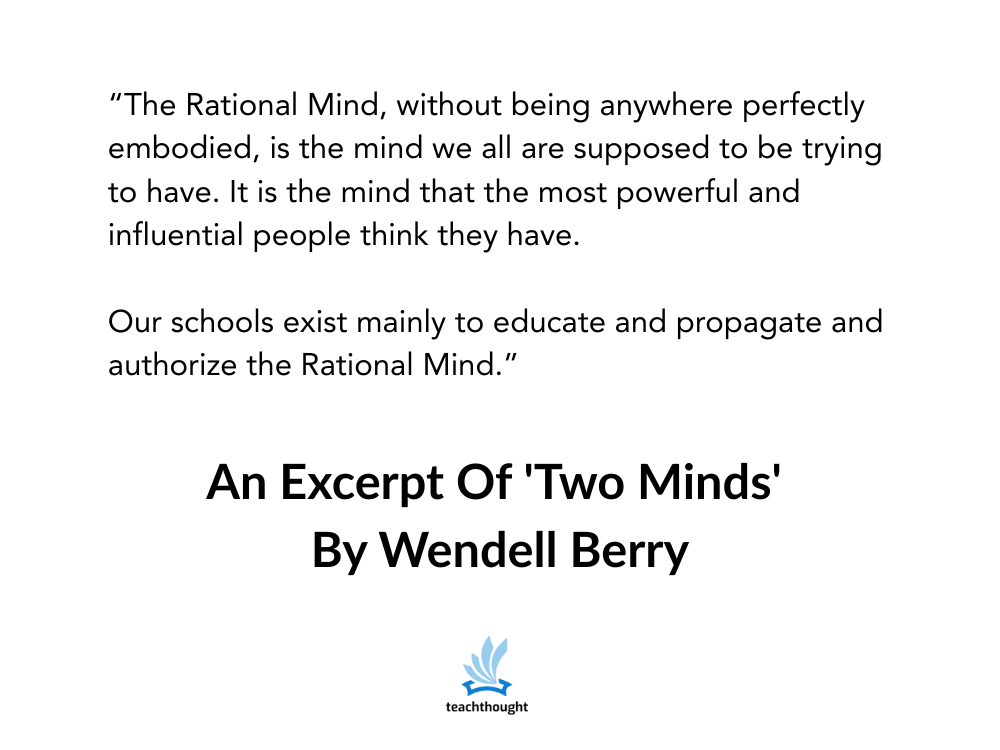by TeachThought Staff
I’ve written many times about Wendell Berry and the effect he has had on me professionally and personally.
Preparing Students For Good Work
Wendell Berry and the Loss of the University
The Peace of Wild Things by Wendell Berry
The Objective by Wendell Berry
Surprisingly, there are more.
Below is an excerpt of ‘Two Minds,’ an essay about that he published in 2003 in response to the World Trade Center attack. It is, very roughly, an essay that explores the two different ‘kinds of mind’ we have and the effects of using–or not using–each.
I wrote more about this in The Two Minds of an Educator.
An excerpt of ‘Two Minds’ is below. You can purchase books by Berry at the Berry Center bookstore.

“It is often proposed, nowadays, that if we would only get rid of religion and other leftovers from our primitive past and become enlightened by scientific rationalism, we could invent the new values and ethics needed to preserve the natural world.
This proposal is perfectly reasonable and perfectly doubtful. It supposes that we can empirically know and rationally understand everything involved, which is exactly the supposition that has underwritten our transgressions the natural world in the first place.
Obviously we need to use our intelligence. But how much intelligence have we got? And what sort of intelligence is it that we have? And how, at its best, does human intelligence work?
See also The Two Minds of an Educator
In order to try to answer these questions I am going to suppose for a while that there are two different kinds of human mind: the Rational Mind and another which, for want of a better term, I will call the Sympathetic Mind. I will say now, and try to keep myself reminded, that these terms are going to appear to be allegorical, too neat and too separate – though I need to say also that their separation was not invented by me.
The Rational Mind, without being anywhere perfectly embodied, is the mind we all are supposed to be trying to have. It is the mind that the most powerful and influential people think they have. Our schools exist mainly to educate and propagate and authorize the Rational Mind.
The Rational Mind is objective, analytical, and empirical; it makes itself up only by considering facts; it pursues truth by experimentation; it is uncorrupted by preconception, received authority, religious belief, or feeling. Its ideal products are the proven fact, the accurate prediction, and the “informed decision.”
It is, you might say, the official mind of science, industry, and government.
The Sympathetic Mind differs from the Rational Mind, not by being unreasonable, but by refusing to limit knowledge or reality to the scope of reason or factuality or experimentation, and by making reason the servant of things it considers precedent and higher.”
The Berry Center
You can find more information about the Berry Center. According to their site, the Berry Center was “established in 2011, The Berry Center is a nonprofit organization dedicated to bringing focus, knowledge and cohesion to the work of changing our ruinous industrial agricultural system into a system and culture that uses nature as the standard, accepts no permanent damage to the ecosphere, and takes into consideration human health in local communities.”
Terrell Heick 2025-09-13 02:48:46
Source link

